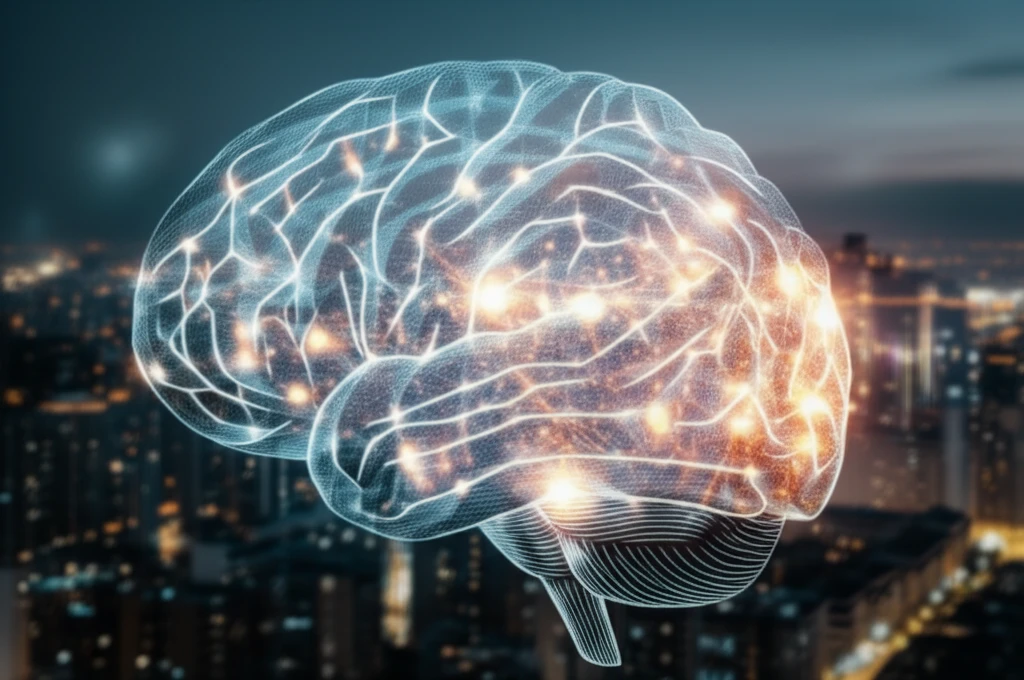
Unlock Your Mind: How Cognitive Skills Can Ease Depression
"Executive Functioning and Spatial Cognition: The Unsung Heroes in Mental Wellness"
Depression is more than just a mood disorder; it significantly impacts how you function daily. From work and relationships to simply managing your day-to-day life, depression can cast a long shadow. While we often focus on the emotional symptoms, research is increasingly highlighting the role of cognitive functions in the experience and management of depression.
Cognitive functions, like memory, attention, and problem-solving, are essential for navigating the complexities of life. When depression clouds these abilities, it can lead to a cycle of dysfunction, making it harder to cope and recover. But emerging research offers a beacon of hope: by understanding and addressing specific cognitive deficits, we can potentially improve psychosocial functioning and overall well-being.
This article explores a fascinating study that delves into the relationship between depression, specific cognitive skills, and psychosocial functioning. We'll break down the key findings, revealing how executive functions and spatial cognition, in particular, play a vital role in mediating the impact of depression on your daily life. Get ready to discover actionable insights that could transform your approach to mental wellness.
Cognitive Skills: The Missing Link in Depression Recovery?

A recent study published in Frontiers in Psychiatry sheds light on how specific cognitive functions mediate the relationship between Major Depressive Disorder (MDD) and psychosocial dysfunction. The study, led by Matthew J. Knight and Bernhard T. Baune, examined data from 155 participants, including individuals with MDD and a healthy control group. Cognitive functions were assessed using a variety of neuropsychological tests, while psychosocial functioning was evaluated using the Functioning Assessment Short Test (FAST).
- Executive Functioning: This includes skills like planning, problem-solving, and task management. Impairments in this area can affect your ability to organize your day, manage responsibilities, and achieve goals.
- Spatial Cognition: This involves understanding and processing spatial relationships, which is crucial for navigation, orientation, and even social interaction. Deficits in this area can lead to difficulties in everyday tasks and contribute to feelings of disorientation and isolation.
Reclaim Your Life: Practical Steps for Cognitive Enhancement
The findings of this study offer a hopeful message: by targeting specific cognitive skills, we can potentially mitigate the impact of depression on psychosocial functioning. This opens the door for innovative treatments that combine traditional therapies with cognitive remediation techniques.
Here are some actionable steps you can take to enhance your executive functions and spatial cognition:
<ul> <li><b>Engage in brain-training activities:</b> Apps and games designed to improve memory, attention, and problem-solving can help sharpen your cognitive skills.</li> <li><b>Practice mindfulness and meditation:</b> These techniques can improve focus and reduce mental clutter, benefiting executive functions.</li> <li><b>Incorporate spatial activities into your routine:</b> Puzzles, navigation apps, and even rearranging your furniture can stimulate spatial cognition.</li> <li><b>Seek professional help:</b> Cognitive behavioral therapy (CBT) and other therapies can help you identify and address cognitive distortions that contribute to depression.</li> </ul> By taking proactive steps to improve your cognitive skills, you can empower yourself to manage depression and reclaim your life.
